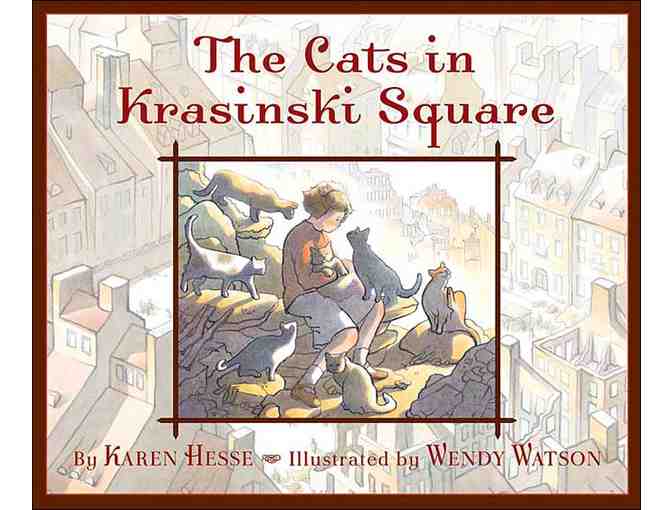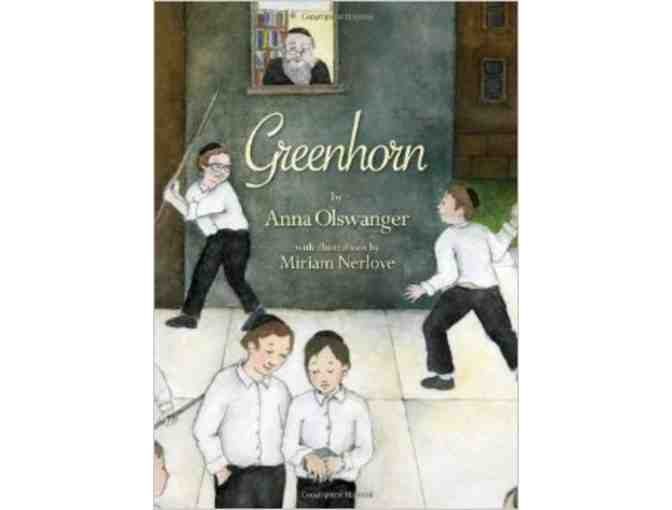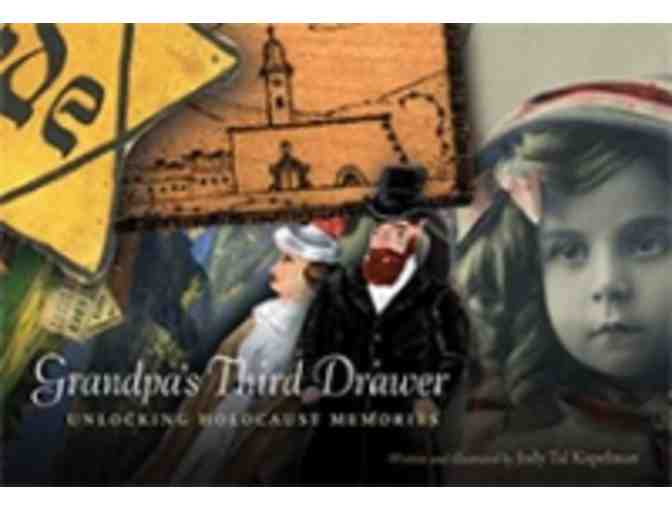Three Children's Holocaust Books

Item Number: 231
Time Left: CLOSED


Description
Greenhorn, by Anna Olswanger. Illustrations by Miriam Nerlove.
In Anna Olswanger's Greenhorn, a young Holocaust survivor arrives at a New York yeshiva in 1946 where he will study and live. His only possession is a small box that he never lets out of his sight. Daniel, the young survivor, rarely talks, but the narrator, a stutterer who bears the taunts of the other boys, comes to consider Daniel his friend.
The mystery of what's in the box propels this short work, but it's in the complex relationships of the school boys that the human story is revealed. In the end, Aaron, the stutterer, finds his voice and a friend in Daniel, and their bond offers hope for a future life of dreams realized, one in which Daniel is able to let go of his box.
Greenhorn is a powerful story that gives human dimension to the Holocaust. It poignantly underscores our flawed humanity and speaks to the healing value of friendship.
The Cats in Krasinski Square, by Karen Hesse. Illustrations by Wendy Watson.
A young Jewish girl and her sister, "passing" as Polish in WWII Warsaw, plot to sneak food, brought by collaborating train passengers, into the ghetto. Their scheme is jeopardized when the Gestapo meets the train with dogs that sniff out both smugglers and contraband food. To foil the Nazis, the sisters gather up the feral cats of Krasinski Square in baskets. They release the cats as a distraction to the dogs, thus allowing the food to be smuggled into the ghetto. Skilled pacing renders the cat solution a satisfyingly subversive surprise while Watson's illustration of the flummoxed Nazis underscores the ensuing chaos. The illustrations, with their soft but firm line and monochromatic sepia-toned palette, have an appropriate retro look. Among the great historical avalanche of Holocaust stories, Hesse has found a little-known vignette that she treats with her customary modest but elevating free-verse style, making a grave subject enormously accessible, gently humorous, and affectingly triumphant.
Grandpa's Third Drawer: Unlocking Holocaust Memories , written and illustrated by Judy Tal Kopelman.
Of all the places in the world, Uri really loves to be at his grandparents' house. There he can stay up way past his bedtime and eat as many sweets from the chocolate box as he likes. There's only one forbidden place in that house: the third drawer in Grandpa's desk. This drawer is locked. No one ever opens it Then one day Uri find the key to the third drawer. From that moment, nothing is ever the same.
Special Instructions
Winner is responsble for $5 handling and shipping to anywhere in the U.S.A.